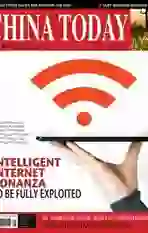Consultative Democracy Needed for the U.S.to Lead the World
2015-07-09ByDINGGANG
By+DING+GANG
AS the largest power in the world, the U.S. continually adapts its national security strategy to ensure its global leadership. The recently published new version of this strategy has once again proved that view.
However, the U.S.s judgment about its leadership is changing. President Barack Obama proposed in his 2010 report that the U.S. needed to rebuild and renew its status as a global leader. It was in that same year that the then Secretary of State, Hillary Clinton, told Asian allies, “The U.S. has returned.”
The report this year was different. In the introduction, Obama stated that the U.S. had its unique capacity to mobilize and lead the international community, but that did not mean that the U.S. could decide the development track of all world affairs. He acknowledged that his countrys resources and influence are not unlimited.
Acknowledging that the country cannot solely decide all affairs of the world is a sign of recognizing the realities. But it is not enough.
Nobody wants to take the U.S.s place. Challenges to the reform of global governance are not about whether or not the U.S. should lead. In fact, the key point is how the U.S. can be a competent leader. The world is changing and Washington needs to “be patient,” as indicated by Obama, and change its way of leadership.
A nation has to qualify to be the world leader. This qualification may change due to the transformation of the global constellation and become more demanding, but even if there are major changes, some elements remain constant, such as investment. A leader must be pragmatic, neither preach nor rest on their laurels. It has to make new contributions.
For example, the U.S. wants to “return to Asia” for the profit of Asian development, and maintain its position in the continent, which is understandably seen from reality or from history. But its “comeback” will not gain recognition by selling some old weapons, or trolling propaganda slogans on human rights and democracy, or trying to coax with harangues that intensify the historical conflicts.
The priority of Asia today is seeking development and prosperity. The“return” of the U.S. is a meaningless term unless it brings something to Asian development, for example, more jobs, railways, roads, computer networks or other infrastructure elements.
After World War II, the U.S. devised the Marshall Plan to promote the development of Europe and thus consolidated its global leadership. The success of the Plan corresponded to the trend of Euro- pean development and helped its allies in Western Europe to rise from the post-war ruins, achieving gains for their people.endprint
But investment alone does not make a good leader. The world is changing; it is becoming multipolar, different from what it was in the past. To be the leader of a multipolar world, a nation must pay attention to its leadership style instead of making authoritarian gestures as if there were only one power.
We do not know whether Washington took note during this years annual sessions of the National Peoples Congress and the Chinese Peoples Political Consultative Conference of the repeatedlymentioned term “consultative democracy,” whose key content refers to making decisions via consultation. This is the governance style of China, but it is also adaptable to solve international problems.
All countries in the world are different; but regardless of whether they are strong or weak, rich or poor, big or small, they are equal members of the international community. As for the affairs of a state, the people of that country have the right to decide, while international affairs should be decided through consultation among all involved.
A good leader must humbly listen to the views of all parties and then build consensus. A good leader cannot consider only its own interests by always calculating ones own profits and losses, or inciting others to fight, and control from a distance.
It is not easy to be the leader of a multipolar world, but progress surely will be made by proceeding with modesty. If the U.S. learns this, everyone will benefit.endprint
